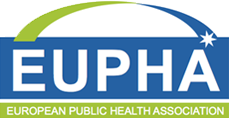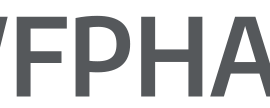
22 April 2020
The COVID-19 outbreak is affecting everyone worldwide, and policymakers, scientists and practitioners are exploring uncharted territory while trying to get to grips with this new virus. Especially in such times of great uncertainty, building on up-to-date and accurate information is crucial. Robust systems of epidemic intelligence that can provide solid national and regional-level epidemiological data to inform modelling of disease transmission at the population level, and ultimately offer effective guidance on public health action, are needed. Sharing data, research outcomes and experiences in order to build a common, growing body of intelligence is key when battling the outbreak and saving lives. Indeed, we see many examples of information being shared, across disciplinary, sectoral and geographical borders, contributing to new insights and accelerated generation of knowledge. EUPHA, as a science-based organisation, commends this open attitude, and calls upon all relevant authorities, organisations and experts to share evidence to the maximum extent possible.
It is also very positive that a lot of relevant research is made publicly available, for example by scientific journals that provide open access to all papers on COVID-19. This public availability of COVID-19 intelligence is vital for battling the outbreak as efficiently as possible while supporting those in less developed countries with limited research resources. Since 2018, a societal movement towards publishing all publicly funded research in Open Access journals and platforms has been ongoing, instigated by the Plan S initiative. This outbreak is a grim illustration of why it is important to make scientific knowledge as widely available as possible and at no charge. EUPHA strongly supports the current societal move towards open access, and we are working towards flipping our own journal, the European Journal of Public Health, towards full open access.
Although it is positive that a growing body of evidence is publicly accessible, at the same time, the volume of information available can be overwhelming and mis- and disinformation can cause confusion and result in negative health impacts. It is important therefore to obtain information from trustworthy sources. Regional, national, and global public agencies, as well as the afore-mentioned scientific publishers, have made key publications, data, and guidelines freely available through regularly updated portals. EUPHA recommends using these sources of information to keep up to date about the development of the outbreak and local mitigation measures.
COVID-19 is a new virus, and researchers around the globe are working hard to generate more knowledge on the virus itself, its prevention and treatment. Several countries are now entering the period following the first peak of the COVID-19 outbreak. Although it remains of utmost importance to keep on collecting information on the transmissibility, seriousness and impact of COVID-19 and public health and healthcare capacity for supporting evidence-informed exit strategies, additional research areas are also emerging. One important area is the wider effect of the outbreak on population health, most notably through the economic consequences, effects of mitigation measures including physical distancing on mental health, and missed or delayed care for non-COVID-19 related conditions. In addition, there is a need to focus on evaluation of strategies to address the pandemic and its longer-term effects, in order to formulate lessons learned to inform future policy and decision making in rapid infection spread. EUPHA, through its tools such as the annual European Public Health Conference and the European Journal of Public Health, will provide a forum for broad scientific debate, including these newer research areas.
A comprehensive, publicly available evidence-base is crucial for combatting the COVID-19 pandemic. EUPHA will continue to support its members and the wider public health community by being a platform for the exchange of knowledge and experiences.
For more information, please contact Dr Iveta Nagyova, EUPHA president, or Dr Dineke Zeegers Paget, EUPHA executive director.



